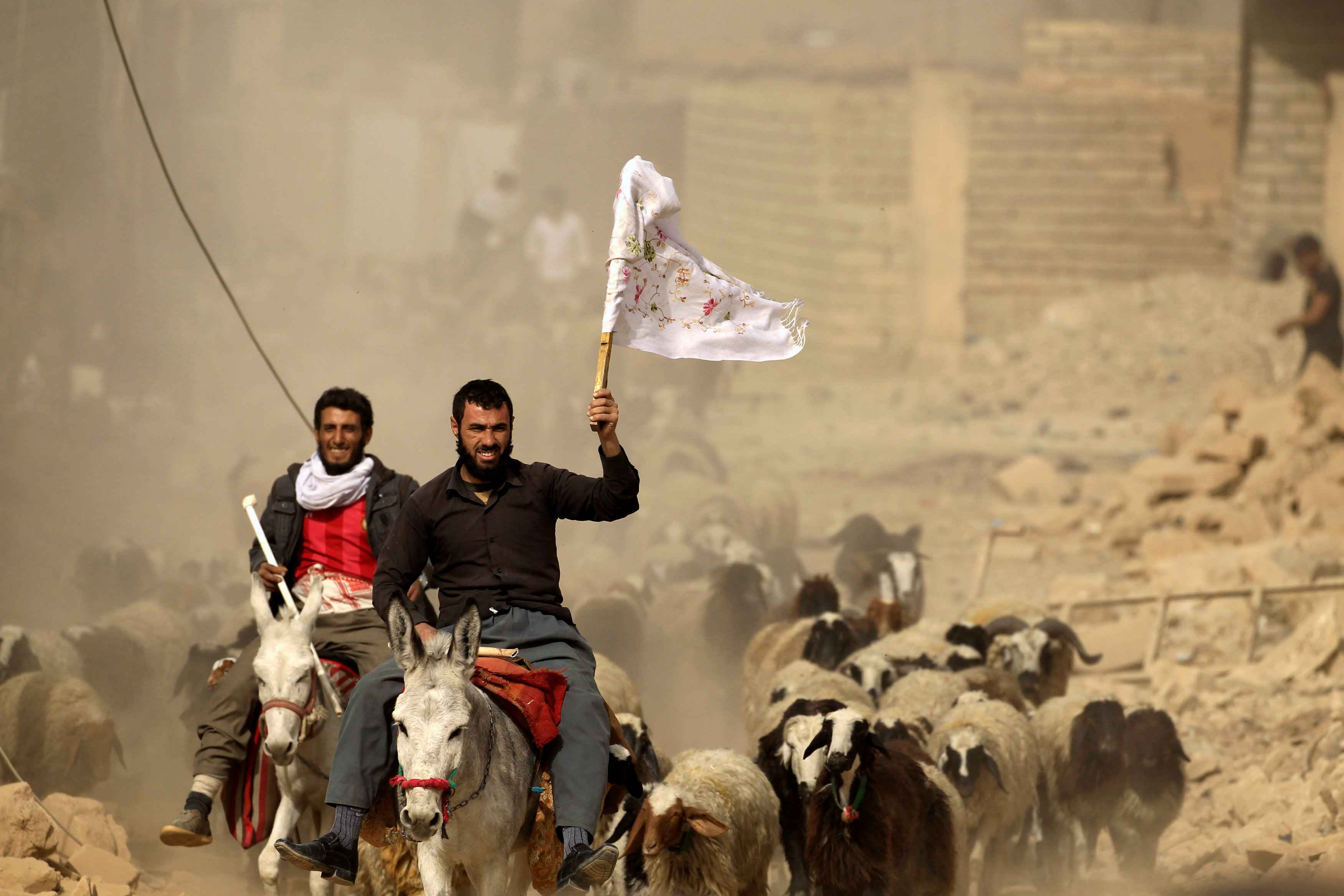
By Chine Labbé
PARIS (Reuters) – French investigators believe they have identified a Belgian militant in Syria as a coordinator of the deadly Islamic State (IS) attack on Paris, but a year on they are still struggling to pinpoint the mastermind.
Just ahead of the Nov. 13 anniversary of an assault that killed 130 people and injured hundreds, victims and relatives of the dead still seek answers. And the only living person believed to be part of the hit-team, now behind bars, refuses to talk.
A painstaking investigation led by an exceptionally large team of six judicial magistrates has inched forward in search of the “remote-controllers” – those who pulled the strings from abroad, at IS bases in Iraq and Syria or elsewhere.
A source close to the investigation told Reuters this week that a new name had been added to the web of militants involved as coordinators – Oussama Atar, a 32-year-old from a Brussels suburb, now believed to be in Syria.
“It’s a very strong suspicion,” said the source, speaking on condition of anonymity. “We are wary of being definitive while the investigation is still under way.”
Atar was jailed in Iraq on arms-trafficking charges before ultimately joining IS ranks in Syria in 2012, and is suspected of playing a key coordination role in the Nov. 13 rampage, but not of being “mastermind in chief”, the source said.
In particular, Atar is suspected of having recruited two Iraqis who blew themselves up outside the Stade de France sports stadium north of the French capital as part of a broader series of assaults in the heart of Paris on Nov. 13 last year.
He is also suspected of being the person to whom other suicide bombers reported before blowing themselves up in further attacks in Belgium that killed 32 on March 22 this year.
SURVIVORS DISSATISFIED WITH PROBE
Atar, the latest addition to France’s suspects list, was identified in a group of photos shown to a militant arrested in Austria. But that advance means little for the survivors of the attacks, in which 90 of the 130 killed were shot or blown up by armed suicide bombers at the Bataclan concert hall in Paris.
“Even if there’s little chance of bringing the attack mastermind to justice, it would be nice to know his name,” said Emmanuel Domenach, who was at the Bataclan when it was attacked.
Sting, a veteran English pop star who has used his celebrity to champion social campaigns such as defense of forest tribes in South America, is scheduled to play on Saturday at the historic venue to mark its post-attack reopening.
Bernard Bajolet, head of France’s foreign intelligence service, told a parliamentary inquiry in May that the orchestrators of the Nov. 13 attack had been identified but declined to name names to protect his sources.
Investigators, however, have yet to make such an identification, another source, speaking on condition of anonymity, told Reuters, and do not know who Bajolet was referring to.
At one stage, it was assumed that the mastermind of the attacks was Abdelhamid Abaaoud, a Belgo-Moroccan killed by elite French police in a spectacular assault on a flat close to Paris a few days after the Nov. 13 killings.
He was subsequently relegated by investigators to a coordinator role like Atar’s.
Three teams took part in the attack – suicide bombers at the Stade de France, gunmen who opened fire on cafes in Paris, and the squad that killed 90 at the Bataclan.
Salah Abdeslam, captured in Belgium after fleeing Paris on the night of the attack and later transferred back to France, is in solitary confinement in a jail on the edge of Paris, but refused to speak at court hearings. He is believed to be the sole survivor of the IS hit team.
The Nov. 13 attacks and subsequent assaults this year have shaken French society.
A state of emergency imposed after the Paris killings was about to be lifted when, on France’s July 14 national holiday, an IS devotee ploughed a truck into a crowd of revelers in the Riviera resort city of Nice, killing 86. About two weeks later, an Islamist slit a priest’s throat in a church in Normandy.
As armed soldiers continue to patrol the Paris landmarks where tourist numbers have thinned, Europe’s largest community of Muslims lives in greater fear of mistrustful neighbors.
Meanwhile the ruling Socialist party has torn itself apart over an abortive attempt to introduce a law stripping people convicted of terrorism of their nationality, and security and immigration promise to be major issues in next year’s presidential election.
(Additional reporting by Gerard Bon; writing by Brian Love; editing by Andrew Callus and Mark Heinrich)












